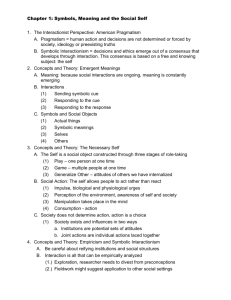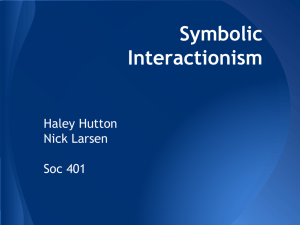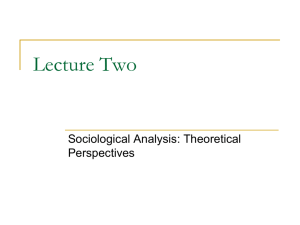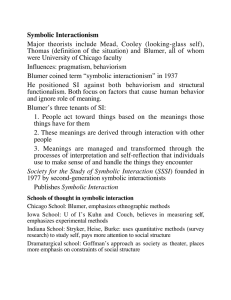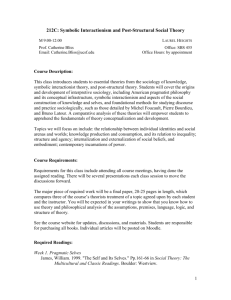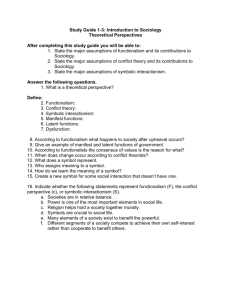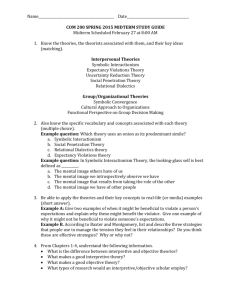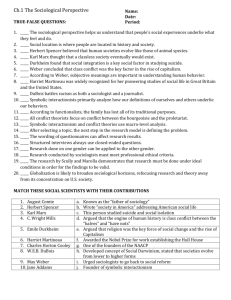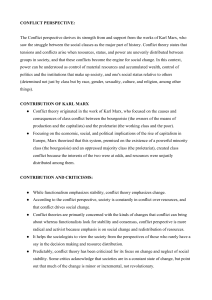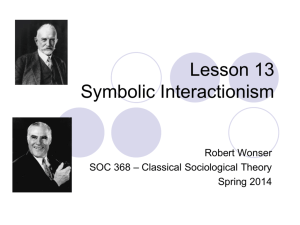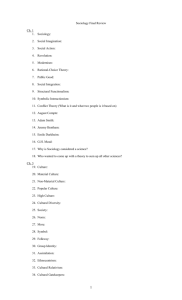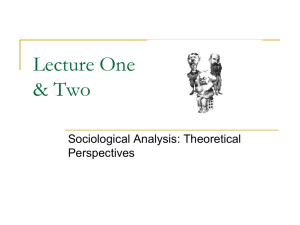The Interactionist Tradition In Symbolic Interaction
advertisement
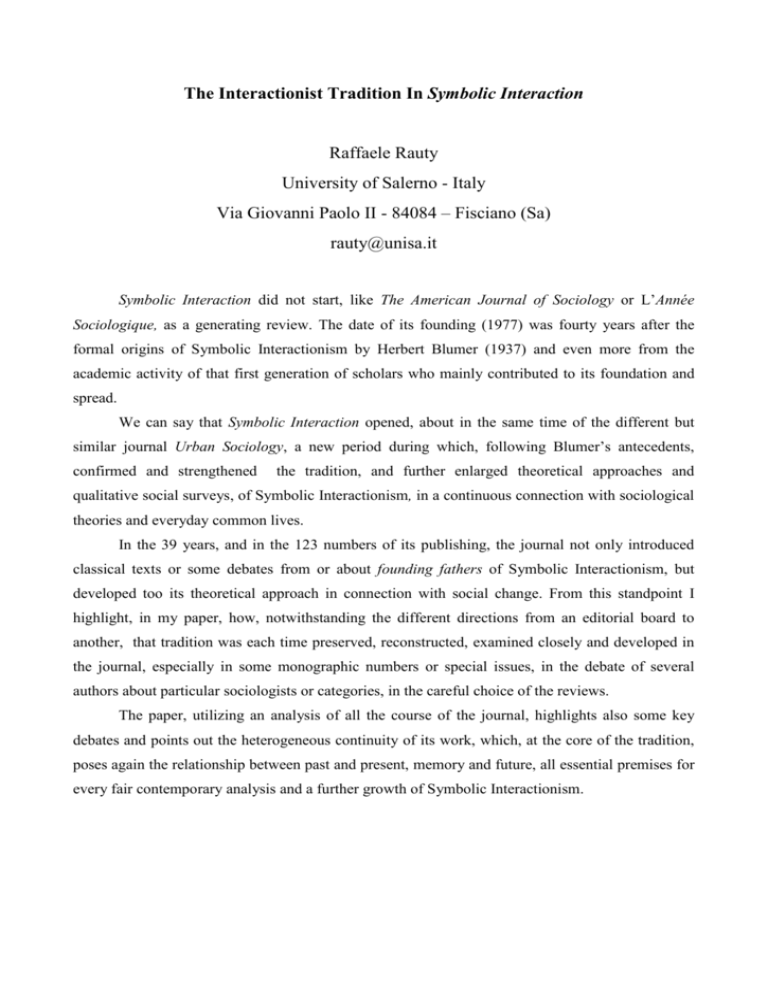
The Interactionist Tradition In Symbolic Interaction Raffaele Rauty University of Salerno - Italy Via Giovanni Paolo II - 84084 – Fisciano (Sa) rauty@unisa.it Symbolic Interaction did not start, like The American Journal of Sociology or L’Année Sociologique, as a generating review. The date of its founding (1977) was fourty years after the formal origins of Symbolic Interactionism by Herbert Blumer (1937) and even more from the academic activity of that first generation of scholars who mainly contributed to its foundation and spread. We can say that Symbolic Interaction opened, about in the same time of the different but similar journal Urban Sociology, a new period during which, following Blumer’s antecedents, confirmed and strengthened the tradition, and further enlarged theoretical approaches and qualitative social surveys, of Symbolic Interactionism, in a continuous connection with sociological theories and everyday common lives. In the 39 years, and in the 123 numbers of its publishing, the journal not only introduced classical texts or some debates from or about founding fathers of Symbolic Interactionism, but developed too its theoretical approach in connection with social change. From this standpoint I highlight, in my paper, how, notwithstanding the different directions from an editorial board to another, that tradition was each time preserved, reconstructed, examined closely and developed in the journal, especially in some monographic numbers or special issues, in the debate of several authors about particular sociologists or categories, in the careful choice of the reviews. The paper, utilizing an analysis of all the course of the journal, highlights also some key debates and points out the heterogeneous continuity of its work, which, at the core of the tradition, poses again the relationship between past and present, memory and future, all essential premises for every fair contemporary analysis and a further growth of Symbolic Interactionism.
